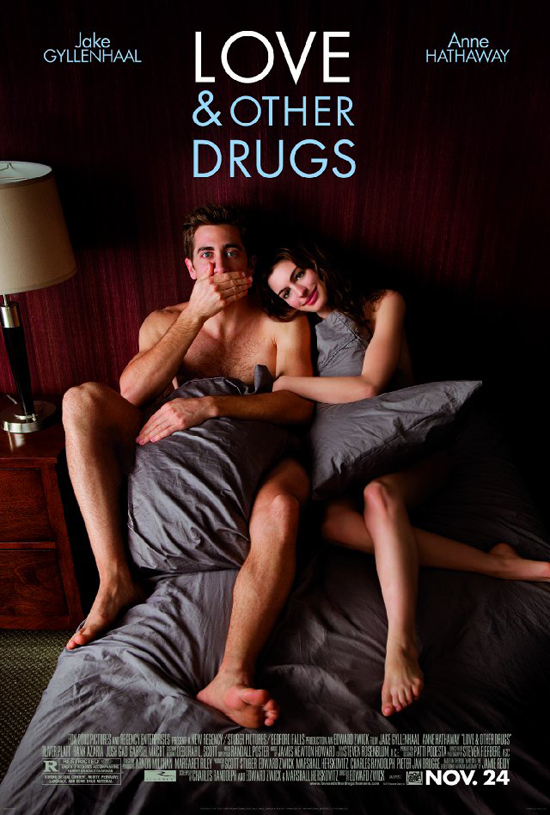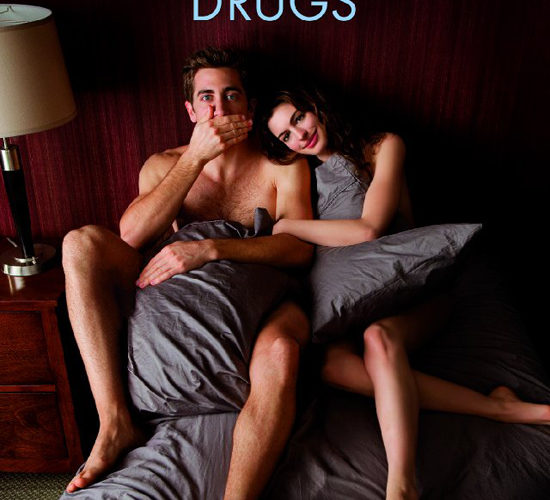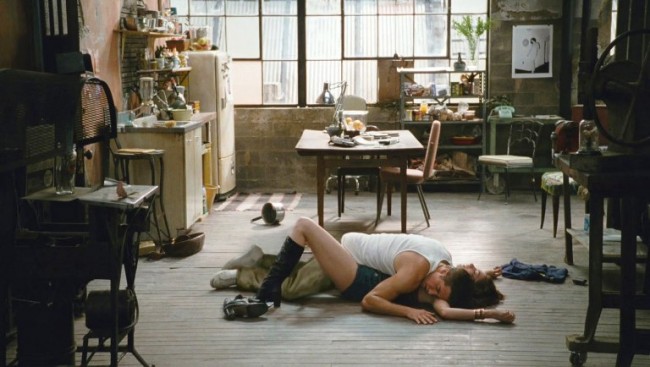I recently had the chance to sit down with Edward Zwick, the screenwriter and director of the new flick Love and Other Drugs. While some may not find the name familiar, I’m sure you would know some of his work. Responsible for such films as Glory, Legends of the Fall, and The Last Samurai, Zwick has decided to dive back into the romantic comedy genre with Love and Other Drugs. First off, let me say how much I loved this film. Let’s be honest, romantic comedies have been done to death, but with Love and Other Drugs, Zwick brings us complex characters and a vintage 80’s feel that plays out well on screen.
The Film Stage: Was this movie based on a novel?
Ed Zwick: It was a non-fiction story of a guy who became a salesman at the time of the introduction of Viagra. But it doesn’t have the love story or the parents or the brother. It’s just the story of him being a rep. We created the surrounding universe.
What drew you to this story and what made you want to turn this into a film?
EZ: Well, it’s a very important moment in our culture and not one that I had seen a lot about. I always thought that love stories could be more than just about boy meets girl. I felt that a love story could have in it, ideas and context, and I thought this was a pretty good opportunity to talk about this pill that could very easily be a big deal about Viagra. Then you have Parkinson’s and some others which have no cure and love is unaffected by either, I thought it would be a good opportunity to tell a love story.
This was the first romantic comedy I’d seen in quite awhile that actually had emotion to it. Most romantic comedies focus mainly on the comedy aspect.
EZ: It’s a great genre. It’s a genre in disrepair. When you think of movies like Broadcast News, Shampoo, or even Jerry Maguire, the genre can really be elevated. Unfortunately, it’s become this thing with a couple of less than great actors in an implausible situation behaving oddly and it ends up being neither romantic nor comedic. I just felt this would be an opportunity to try and see how we could do to honor some of those movies where it wasn’t like that.
There was definitely a throwback feel to the romantic comedies from the 80’s and 90’s
EZ: I really believe in the word and as opposed to the word or. Something can be both funny and serious. There’s no reason why it can’t be both emotional and narratively interesting. I wanted to see if we could achieve that balance.
As far as bringing Gyllenhaal and Hathaway on board, how did that come about?
EZ: It was very traditional. I knew their work and had been following their work. You have a script that you think is going to appeal to them and you get it to them and you sit down together. You take each other’s measure as you sit there. Try to learn something about each other about how you approach the process. You talk to other people who had worked with them. I knew some directors who had worked with Jake and someone who had worked with Annie and you do your own due diligence. I’m sure they did the same about me and we just decided to do it. It was pretty straight forward.
Jake and Anne were your first choices for these roles?
EZ: Very much, yes.
The past few films you’ve done have been more dramatic. Why a romantic comedy now?
EZ: Because I think it’s a great genre. Almost in reaction to some of the movies I had seen that I felt hadn’t been done particularly well. I knew it was a genre that has all sorts of potential and I wanted to try it again.
How did you go about shooting this film considering the emotional one-on-one character scenes as opposed to more of an epic dramatic film shoot?
EZ: You don’t have the advantage of big set pieces, explosions, helicopters, and all the things that can distract the audience from the characters really. The challenge in those big movies is making the set pieces such that it’s really a story about the people. In this sense you really only have the people. To really focus on that and to believe that in your close examination of their behavior that you can keep an audience engaged is the real challenge in this type of movie.
You introduced the love interest Maggie Murdock (played by Anne Hathaway) which was not in the original story. What influenced you to create her with this disease and her characteristics?
EZ: I’ve known Michael J. Fox for a very long time. I met him when he first came to Hollywood. I’ve read his books and observed what he’s gone through. There’s something very poignant about that moment of a woman’s youth and beauty as it fades anyway, but to have that premature, to have that forced is particularly poignant. On the other hand, we all deal with things in our lives. The notion that a relationship would have to deal with something like this so quickly is a different way to talk about what a real relationship is.
For me this film was very modern, but still dealt with a traditional sense of a relationship.
EZ: I think that’s right. Yes, they fall into bed first before they fall into love. They resist being in a relationship. Yes, I think that’s true.
A lot of your work seems to revolve around the relationships between the characters and how they grow with each other.
EZ: Yeah, I think that’s true. Obviously, she’s using sex as a way to avoid real intimacy and he’s in denial about her condition and about what he wants in life in terms of connection. They both liberate each other to a certain degree. They find some other parts of themselves. That’s what I was going for.
That sort of depth between the characters is what really made this stand out for me as a great film.
EZ: It’s so often about ‘who gets what’. Not a materialistic, but oddly objectified universe. As opposed to an internal world.
Great job on this film, do you know what’s next for you?
EZ: I wish I knew. I’m just not good at predicting.
Any ideas?
EZ: I’m working on something with Leonardo DiCaprio, and I very much liked working with Annie and Jake. I’d love to work with them again, either together or apart. You really these days you have to have a couple of things stewing in your mind. You can’t really predict at all what the studios would be interesting in financing and you have to be a little bit supple.
Did the studio immediately take to this idea when you brought it to them?
EZ: Yeah, really we did it more speculatively than that. We wrote the script, we got the actors, and we brought it to them and said, ‘do you want to do this?’ It was a more independent approach, which I like.
Love and Other Drugs opens today, just in time for the Thanksgiving holiday.

What did you think of Love and Other Drugs?




